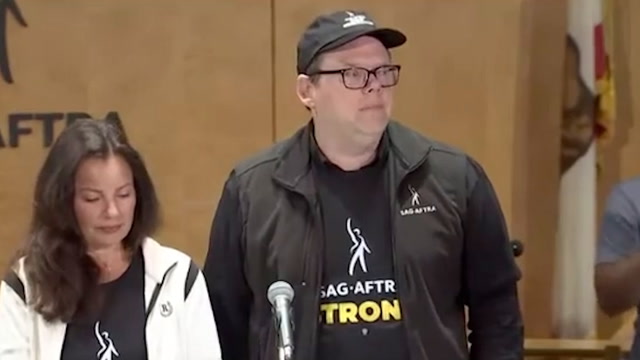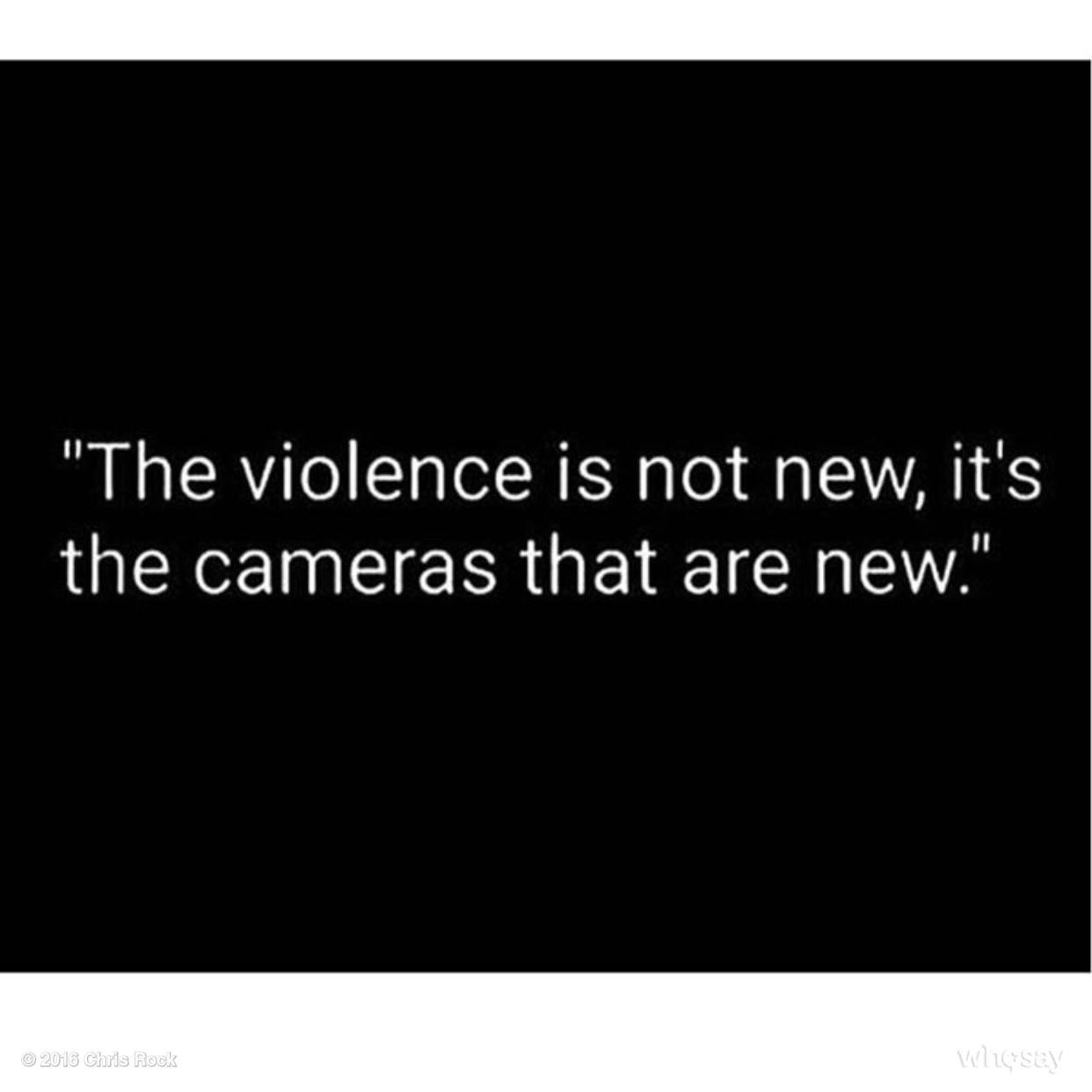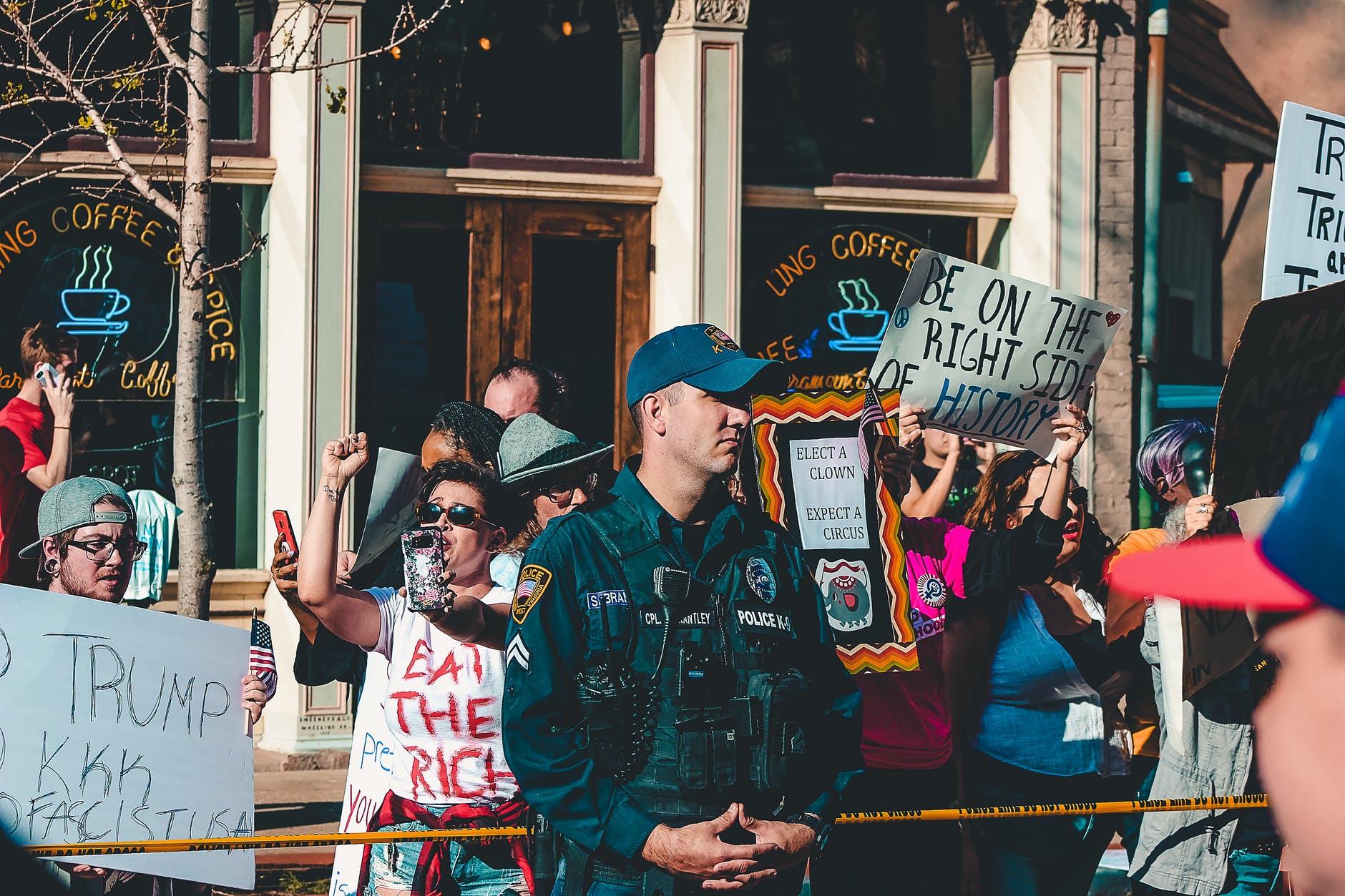Actors And Writers Strike: A Complete Shutdown Of Hollywood Production

Table of Contents
Understanding the Roots of the Actors and Writers Strike
The current strike is a culmination of long-simmering tensions between creative professionals and major studios, fueled by the rapid changes in the entertainment landscape. The core issues driving the strike can be understood through the specific demands of the two main unions involved: the Writers Guild of America (WGA) and the Screen Actors Guild - American Federation of Television and Radio Artists (SAG-AFTRA).
Writers Guild of America (WGA) Demands
The WGA's strike is rooted in a demand for fairer treatment in the age of streaming. Their key concerns include:
- Fair wages and residuals in the streaming era: The traditional model of residuals – payments to writers based on repeated broadcasts of their work – is largely broken in the streaming model. The WGA argues that streaming platforms' opaque viewership data and payment structures result in significantly reduced income for writers compared to the network television era.
- The WGA is pushing for a more equitable system that fairly compensates writers for their work on streaming services, regardless of viewership figures.
- Protection against AI-generated content: The increasing use of artificial intelligence in scriptwriting represents a significant threat to writers' livelihoods. The WGA seeks guarantees that AI will not be used to replace human writers and that their creative work will be protected from unauthorized AI usage.
- The union fears that AI could be used to generate scripts cheaply, undermining writers' job security and creative control.
- Improved working conditions: The WGA is also advocating for improved working conditions, including reasonable minimum staffing levels on productions and an end to exploitative practices.
- Increased transparency in streaming viewership data: The lack of transparency around streaming viewership data makes it difficult for writers to negotiate fair compensation. The WGA is pushing for studios to provide more accurate and accessible data.
SAG-AFTRA's Fight for Fair Compensation
SAG-AFTRA, representing actors, faces similar challenges in the streaming era. Their key demands include:
- Fair wages and residuals for actors: Similar to the WGA, SAG-AFTRA is fighting for fair compensation for actors, especially in the streaming landscape where traditional residual models are often inadequate. They highlight the disparity between the compensation actors receive for streaming projects compared to traditional network television.
- SAG-AFTRA is pushing for a restructuring of payment models that accurately reflects the value of actors' contributions to streaming productions.
- Protection against the use of AI in creating digital replicas of actors: The potential for studios to use AI to create digital replicas of actors and utilize them without their consent or compensation poses a serious threat to actors' livelihoods and creative control. SAG-AFTRA is seeking protections against this practice.
- The use of AI-generated likenesses raises significant ethical and contractual concerns for actors.
- Improved benefits and pension plans: SAG-AFTRA is also advocating for better benefits and pension plans to address the financial insecurity that many actors face, particularly in the increasingly volatile entertainment landscape.
The Impact of the Actors and Writers Strike on Hollywood
The combined strike by actors and writers has brought Hollywood to a standstill, with far-reaching consequences.
Production Delays and Cancellations
The strike has resulted in:
- Major film and television productions indefinitely postponed: Numerous high-profile projects, from major studio films to popular television shows, are on hold, creating a massive backlog of unfinished projects.
- Late-night talk shows and daily dramas off the air: The absence of actors and writers has resulted in the cancellation of many daily television programs, leaving a void in the television schedule.
- Substantial economic impact on related industries: The ripple effect extends beyond the studios, impacting numerous businesses and individuals who rely on the entertainment industry, including caterers, transportation services, and local businesses.
Financial Implications for Studios and Networks
The financial consequences of the strike are significant and mounting:
- Loss of revenue from delayed productions and cancelled projects: Studios and networks are facing substantial revenue losses as productions remain stalled.
- Potential impact on stock prices and investor confidence: The prolonged strike has the potential to negatively affect the stock prices of entertainment companies and erode investor confidence.
- Increased costs associated with potential future settlements: The longer the strike lasts, the higher the potential cost of reaching a settlement with the unions.
Potential Resolutions and Future of the Actors and Writers Strike
Resolving the strike requires a complex negotiation process, fraught with challenges.
Negotiation Strategies and Challenges
- Both sides must find common ground on key issues: Reaching a compromise that addresses the concerns of both actors and writers while remaining financially viable for studios will require significant concessions from all parties.
- The influence of powerful studio executives and streaming giants: The power dynamics between the unions and the powerful studios and streaming giants play a crucial role in the negotiations.
- The role of public support and media attention in the negotiations: Public opinion and media coverage can influence the outcome of the negotiations, putting pressure on both sides to reach a resolution.
Long-Term Implications for the Entertainment Industry
The strike could fundamentally reshape the entertainment industry:
- The strike could reshape the relationship between studios and creative talent: The outcome of the strike may lead to a renegotiation of the power balance between studios and creative professionals.
- Potential for changes in compensation models and working conditions: The strike could lead to significant changes in compensation models and working conditions for actors and writers.
- The long-term effects of AI on the industry remain to be seen: How the industry addresses the challenges posed by AI will significantly impact its future.
Conclusion
The Actors and Writers Strike represents a pivotal moment in Hollywood history. The widespread impact of this shutdown is undeniable, affecting not only the creative process but also the broader economy and the future of the entertainment industry itself. Understanding the core issues fueling the strike — fair compensation, the impact of streaming, and the rise of AI — is essential for anticipating potential resolutions and the long-term implications for filmmaking and television production. Stay informed on the developments of the Actors and Writers Strike and its potential variations to understand how this significant event will shape the future of entertainment.

Featured Posts
-
 Police Leader Investigated Over Tweet On Chris Rock
Apr 30, 2025
Police Leader Investigated Over Tweet On Chris Rock
Apr 30, 2025 -
 Dr Jessica Johnson A Yates Exhibit Presentation On Black Historys Influence
Apr 30, 2025
Dr Jessica Johnson A Yates Exhibit Presentation On Black Historys Influence
Apr 30, 2025 -
 Arkema Et Le Document Amf Cp 2025 E1027752 Informations Cles
Apr 30, 2025
Arkema Et Le Document Amf Cp 2025 E1027752 Informations Cles
Apr 30, 2025 -
 Classifica Aggiornata La Flaminia Guadagna Due Posizioni
Apr 30, 2025
Classifica Aggiornata La Flaminia Guadagna Due Posizioni
Apr 30, 2025 -
 Police Accountability Campaigners Concerns And Demands For Change
Apr 30, 2025
Police Accountability Campaigners Concerns And Demands For Change
Apr 30, 2025
